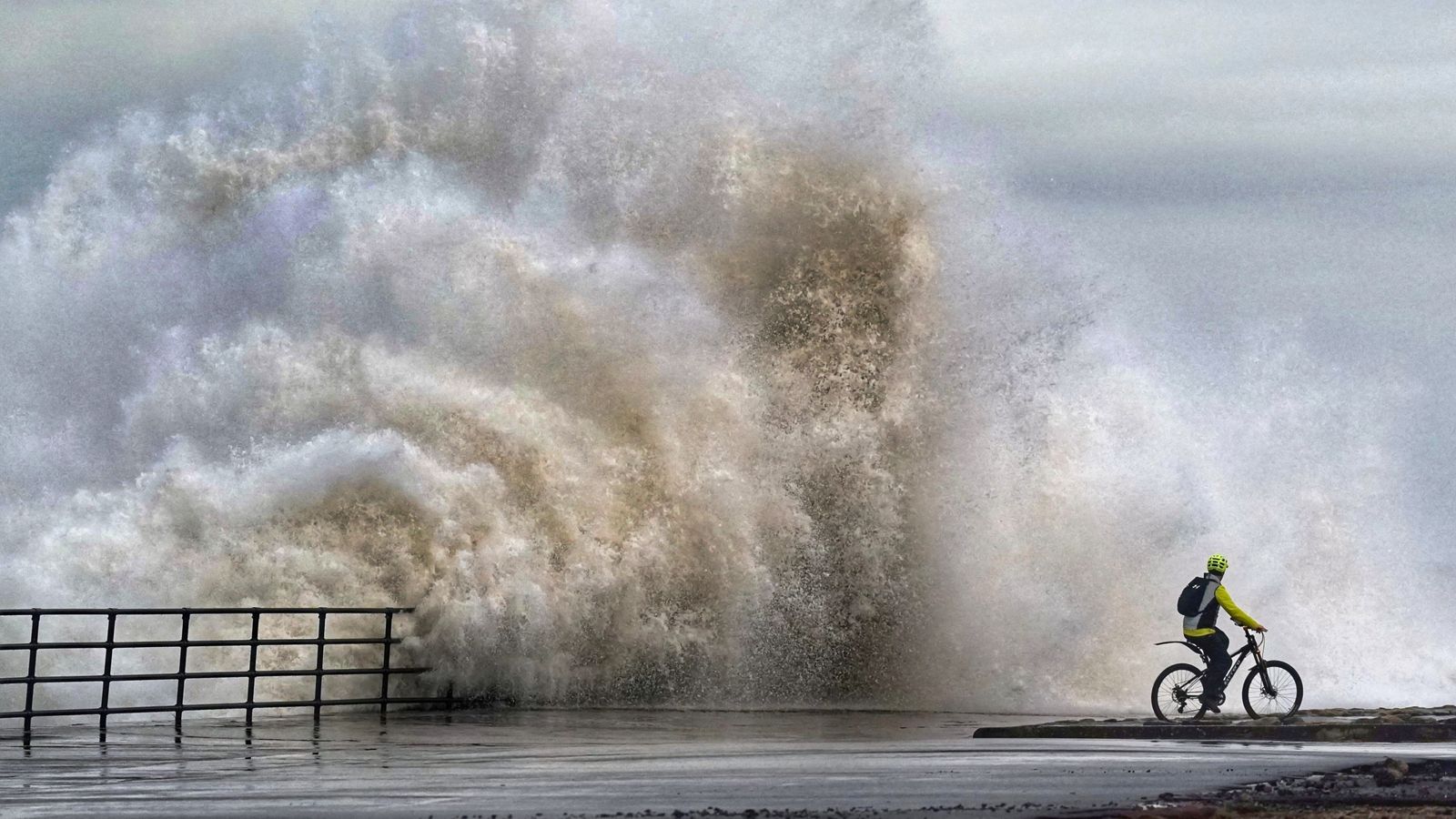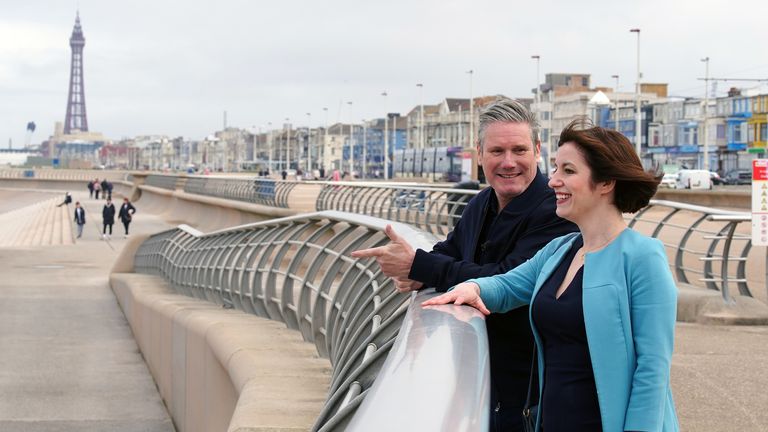Labour lead grows in ‘sea wall’ constituencies, polling shows


New research has revealed a huge lead for Labour in coastal towns and communities.
Exclusive polling from the Fabian Society shows that in 108 constituencies in England and Wales that contain at least one coastal town, Labour leads with 52% of the vote.
Coastal towns and communities – dubbed the ‘sea wall’ – will be vital in the race to win the general election – and Labour has never led the Tories in these regions by such a margin before.
Politics latest: Why Speaker Sir Lindsay Hoyle appears safe for now
Listen to Beth Rigby, Jess Phillips and Ruth Davidson as they unravel the spin in a new weekly podcast from Sky News
The polling shows the Conservatives lag behind on 21%, with the Reform party fairly close behind that with 14% of the vote.
This represents a significant 31% lead and a swing of 27 percentage points compared to 2019.
Turning tide?
Though often neglected, coastal towns are a vital and distinctive group that have long been an indicator of which political party will be the governing one, with the coast often voting in line with political change.
It is why most coastal seats are currently held by the Conservatives.
Advertisement
But, according to this new research, the tide could be turning.
Some 44% of voters in the sea wall said they would never consider voting Conservative now, compared to 29% for Labour.
Read more: View the latest polling
When asked which political party, if any, would be better at tackling the cost of living, 38% of respondents in the sea wall selected Labour – compared to 23% that chose the Conservatives.
The poll was conducted between 17 and 18 January on behalf of YouGov and the Fabian Society, which is affiliated with the Labour Party.
Read more from Sky News:
Cat killer found guilty of man’s murder
At least nine dead after fire in major Spanish city
Politician avoids suspension over ‘anti-English’ gun post
Ben Cooper, the Fabian Society’s research manager, said: “Polling shows that Labour has a substantial lead across the sea wall, is the preferred government for many voters living in coastal towns, and is most trusted on the cost of living.
“But there remains significant uncertainty about whether Labour’s polling lead will be as large in the sea wall when all the votes are counted, with a large proportion undecided or considering Reform who may swing back to the Conservatives – particularly at a general election.”

Rural vote
The traditional view has been that rural voters go Conservative.
But in a clear sign that this core vote could be at risk of crumbling, Rishi Sunak this week made a personal pledge to farmers at the NFU conference – the first prime minister to address the conference in person in 15 years.
Coastal communities are distinct in that they usually have a larger proportion of over 50s than the national average, as well as a larger proportion of homeowners.
Housing has already proved to play a major role in any upcoming general election in these areas – especially in Devon where Sky News reported from last year.
👉 Listen above then tap here to follow Electoral Dysfunction wherever you get your podcasts 👈
Putting theory into practice
We might not have to wait for a general election to see how ‘sea wall’ voters may be leaning.
MP Scott Benton was caught in a lobbying scandal and faces a vote next week to trigger a recall petition that could then lead to a by-election.
It means the former Conservative’s sea wall seat of Blackpool South could soon be up for grabs.
While by-elections are not a perfect test of the national picture, this will be the first indication of whether these voters are preparing the way for a sea-change election.